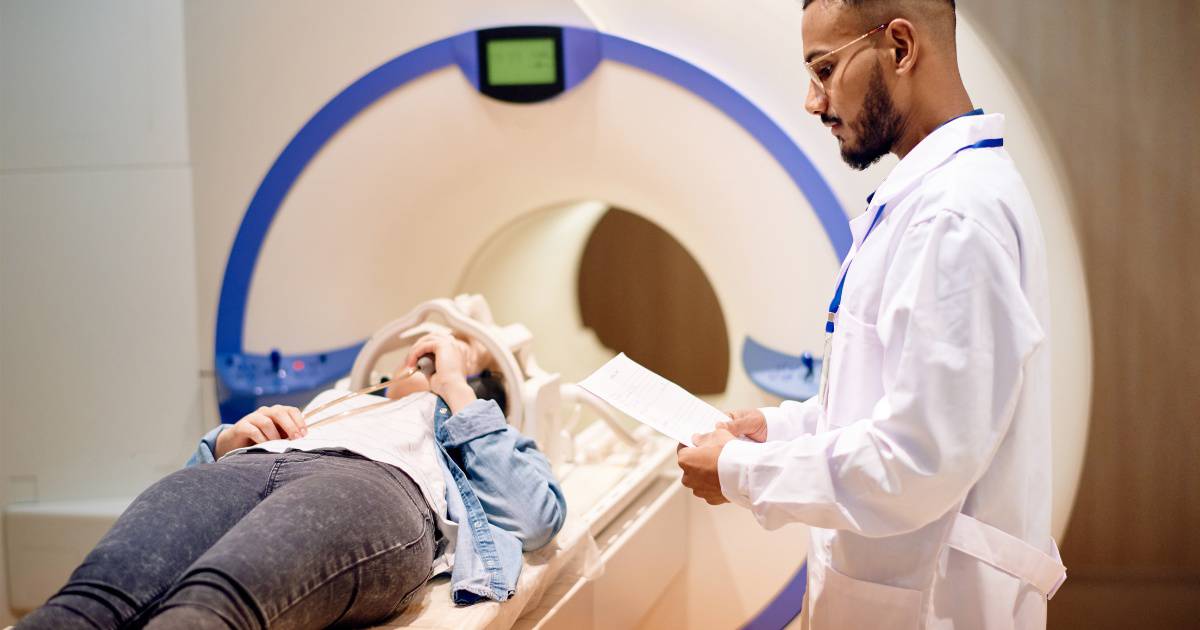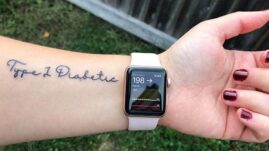Magnetic resonance imaging (MRI) is a popular medical technology used to diagnose diseases and track the effectiveness of medical treatment.
Doctors use MRI scans to help accurately image parts of the body to determine the root cause of symptoms.
This article will outline what people with diabetes need to know before getting an MRI.

What is an MRI?
MRI scanners are machines that use powerful magnets, radio waves, and computers to generate detailed images of the body.
The MRI machine itself looks like a large tube or doughnut with both ends open. A bed-like platform for the patient slides in and out of the open space in the middle.
Another type of MRI is an open MRI. Rather than a tube for the patient, there is a wider opening, which some people find less confining or claustrophobic.
A diagnostic radiologist will typically read the results. The radiologist will then relay the information from the scan to the medical provider who first ordered the test.
Most of the time, getting an MRI will last 30 minutes to one hour. The quickest scans are about 15 minutes, while the longest scans are about 90 minutes.
Why would someone need an MRI?
Getting an MRI is safe. It does not expose you to ionizing radiation or to X-rays.
MRI images play an important role in helping medical professionals to diagnose a disease or injury. They can also help track the progress of a course of treatment.
A doctor may order an MRI to diagnose a multitude of issues, including:
- Problems with circulation and the vascular system
- Digestive tract issues that are difficult to diagnose
- Heart or lung issues
- Issues with the organs in the abdomen
- Tumors or masses
- Bone conditions, spinal issues, and sports injuries
- Brain abnormalities
What is the difference between an MRI and a CT scan?
MRI scans and computerized tomography (CT) scans are two common types of medical imaging.
MRI scans use strong magnetic fields to develop images of areas inside the body.
CT scans are a series of X-ray pictures taken in quick succession. These pictures are combined to create cross-sectional images.
Generally speaking, an MRI provides better resolution and contrast when imaging soft tissues, including the brain and some of the organs in the abdomen.
CT scans are much faster than an MRI and are often better at resolving issues with the lungs and bones.
Can you get an MRI if you have diabetes?
People with diabetes can get an MRI.
Let your medical team know that you have diabetes in case there are special considerations or precautions needed.
What should people with diabetes know before an MRI?
Communication is key! Ask your medical provider if there’s anything special you need to do to prepare because of your diabetes. You should also ask the radiologist or MRI tech questions before the scan begins.
Managing your blood sugar is also an important part of preparing for an MRI.
Some people with diabetes find it easier to have an MRI in the morning. Usually, blood sugar levels tend to be higher due to the Dawn Phenomenon.
Schedule your MRI during a time of day when your blood sugar tends to be higher than average. This is a good way to avoid needing to stop the scan to treat a low during an MRI.
For the same reason, it’s also best to avoid scheduling an MRI over a mealtime if you can help it.
You will need to remove any insulin pump or continuous glucose monitor (CGM) you are wearing.
Most insulin pumps and CGMs are considered “MRI unsafe” because they contain metals. The powerful magnets in the MRI machine can damage or destroy these devices.
If you use an implantable CGM like the Eversense, also be sure to tell your MRI tech and medical provider. It is likely the implant will need to be removed before a scan.
You will also be asked to remove any electronics or metal that you have—this includes metal medical alert bracelets.
An MRI tech will be on hand to coach you on breathing and help you stay still. It’s important to let them know if you feel like your blood sugar levels are getting seriously out of range.
Do not be afraid to speak up if your blood sugar is very high or low. If you need to, you should be able to exit the MRI room to get a snack or take a correction dose of insulin.
Do I need to fast before an MRI?
Your doctor or radiologist will tell you if you need to fast for your MRI. It’s a good idea to ask to make certain.
Generally, you will not be asked to fast for a long time before an MRI. A short fast between two and four hours before a scan is a bit more common.
Whether or not a fast will be needed often depends on the part of your body being imaged.
It is much more likely that a fasting MRI will be ordered if you are having a scan of your gastrointestinal tract or adjacent organs in the abdomen.
Furthermore, many people prefer to not drink too many liquids before an MRI to avoid needing to go to the bathroom during the scan.
Can an MRI influence blood sugar?
While at least one study has linked receiving an MRI to a slight drop in average blood glucose, there are currently no medical device warnings that relate to hypoglycemia.
There is also no evidence that receiving an MRI will make your blood sugars high.
Despite this, it is always a good idea to make certain the person performing your MRI knows that you have diabetes.
It’s also good to know your own blood sugar levels before your MRI begins.
Conclusion
An MRI scan plays an important role in helping medical providers to diagnose diseases and injuries, as well as track the progress of a course of treatment.
MRI scans are very safe, including for people with diabetes.
However, it’s important to tell your medical provider and the person performing the MRI that you have diabetes so that they are aware of any special considerations.
If your MRI is pre-scheduled, it’s also a good idea to think about what time of day to get an MRI to dodge lows or highs you routinely experience.
Make sure that you’ve told your doctor and the person performing the MRI if you have any medical equipment like pumps or CGMs, as these will often need to be removed.
It is also a good idea to ask if you need to fast or change anything about your food or water intake on the day of your MRI.
Hopefully, with these tips, you’ll feel better knowing that getting an MRI is nothing to worry about if you have diabetes!



